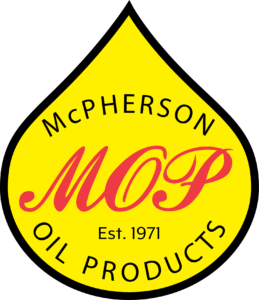Your Guide to Protecting Fleet Engines in the Summer Heat
24 May 2017, Posted by in General During the winter months, fleet managers are faced with preventing gelled fuel. When the summer heat rises, fleets are faced with protecting their engines from overheating. While you can’t control the weather that drivers will face, there are steps you can take to prepare fleet vehicles to withstand summer heat and humidity without breaking down, overheating, or wasting time and money. From fuel services to preventative maintenance, here’s your guide to protecting fleet engines in the summer heat.
During the winter months, fleet managers are faced with preventing gelled fuel. When the summer heat rises, fleets are faced with protecting their engines from overheating. While you can’t control the weather that drivers will face, there are steps you can take to prepare fleet vehicles to withstand summer heat and humidity without breaking down, overheating, or wasting time and money. From fuel services to preventative maintenance, here’s your guide to protecting fleet engines in the summer heat.
Keep It Cool
One of the biggest concerns in summer months is fleet engines breaking down from overheating. At least every two years, it’s important to keep up with regular cooling system maintenance, flushing and changing the coolant. You should also get under the hood and inspect cooling hoses and system components for signs of wear and damage, replacing them to prevent engine damage.
Examine Electrical Systems
In response to summer heat, the risk increases for truckers to break down on the side of the road with a dead battery. If high temperatures evaporate the battery fluid, the battery could overcharge, reducing its lifespan. Check the battery cables and alternator wires to ensure nothing is loose or in contact with fuel lines or abrasive items that will destroy their insulation. Keep an eye out for signs of battery corrosion, cleaning it off or replacing the battery as needed.
Stay on Top of Oil Changes
Small particles pulled from the air can get into engine lubricants, making them sludgy and abrasive. When the oil gets dirty, it takes on a thick and sticky consistency that impacts its ability to lubricate the engine. This results in dirty oil wearing down the moving parts in the engine, which also adds extra heat to the engine block.
Don’t Forget the Filters
A strong engine needs clean air, oil, and fuel filters to function efficiently. The oil filter should be changed at every oil change, because a dirty oil filter will compromise the quality of new oil. Air filters should generally be changed at every other oil change, but you may need to do it more or less often depending on your fleet location’s air quality. If you neglect changing the fuel filter, the flow of fuel to the injectors will be limited. This pushes air into the fuel system, which damages the engine.
Protect Your Fleet with Fuel Services
McPherson Oil offers fuel services that help your fleet run more efficiently. Our Total Petroleum Management ensures that you have all your fluid, maintenance, and equipment needs met by a single, expert provider. From fuel supplies, fluid delivery, oil recycling, and more, McPherson Oil is the only partner your fleet needs. Contact us or call 888 802 7500 today to see how our fuel services can work best for your business.
